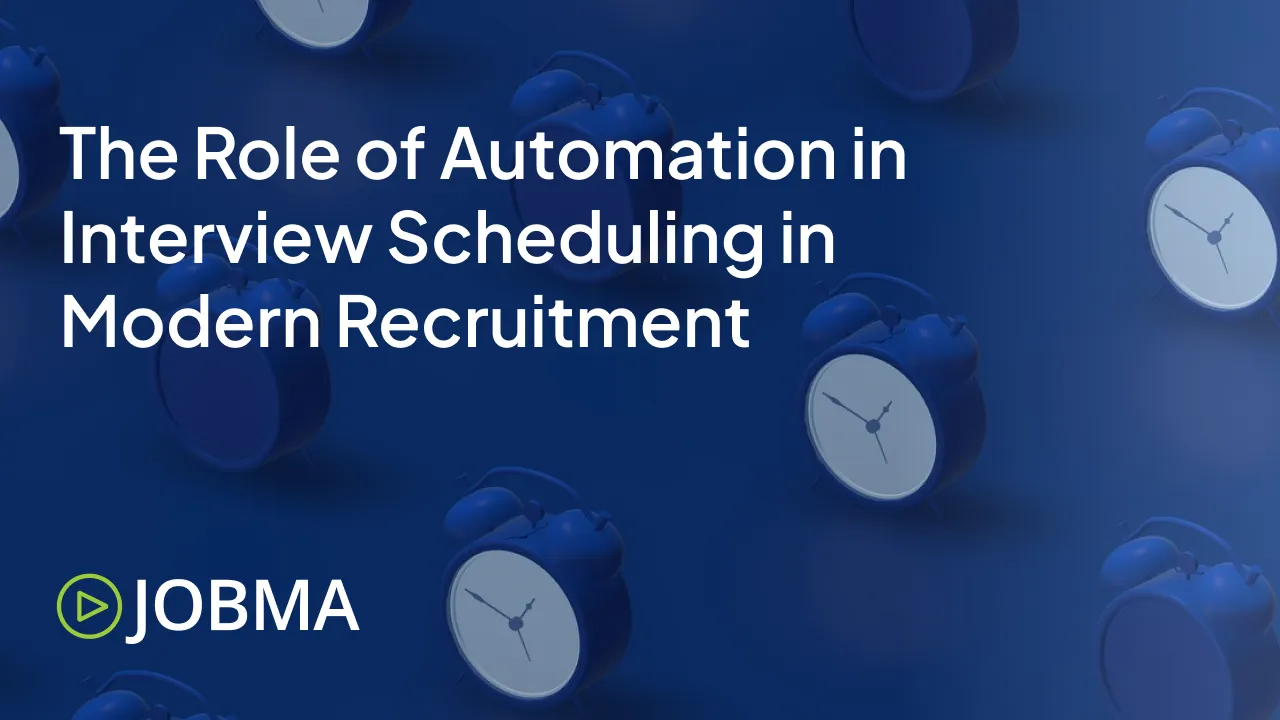
That’s why the role of automated interview scheduling in modern hiring workflows is important. It turns a chaotic back-and-forth process into a smooth, self-service experience for both recruiters and candidates.
What Makes Automated Scheduling a Game-Changer
Automation in scheduling works in a few simple steps: you set your availability calendar and send the candidate an open link to select a slot that works for them. Next, the system sets up an interview link and sends automated reminders to both you and the candidate before the interview starts. The system automatically updates calendars, handles time zone differences, to ensure interviews happen on time. By using workflow automation, these processes become seamless, reducing manual effort and minimizing scheduling errors.
This simple shift saves hours of admin work every week, keeps interviews on track, and offers a frictionless, modern candidate experience. According to GoodTime’s Hiring Insights Report 2025, scheduling automation ranks among the top three ways hiring teams use AI to improve productivity.
Top Tools That Power Interview Automation
1. Calendar Integrations
Tools like Calendly, Outlook, and Google Calendar keep recruiter calendars synced in real time. Once a slot is booked, it’s instantly reflected in candidate-facing availability, minimizing double bookings and confusion.
2. Interviewing Platforms with Built-in Scheduling
Platforms such as Jobma let recruiters set availability, share scheduling links, and automate confirmations and reminders. Candidates can book, reschedule, or cancel interviews seamlessly, without any manual coordination.
3. ATS and Job Boards
Modern ATS tools like Greenhouse, Workday, and iCIMS integrate directly with scheduling and interviewing systems to let candidates pick interview slots, cutting down days of waiting time.
How Automation Boosts Recruiter Productivity
Automation isn’t just about convenience, it’s about optimizing time. Recruiters spend nearly 35 percent of their week on manual scheduling, but AI recruitment software helps reduce that load by:
- Eliminating Repetitive Emails: You send a single scheduling link that’s already synced with your hiring team’s availability. The candidate chooses a time that works, and the system books it instantly. Confirmations go out automatically, and everyone is aligned without another email being exchanged. At the same time, many companies improve efficiency by exploring Enterprise AI Development Services to streamline these processes even further.
- Scaling Effortlessly: You can send bulk invitations, and candidates can self-schedule their slots within predefined recruiter availability. This scalability matters because high-volume hiring is often time-sensitive.
- Reducing No-shows: One-click confirmation, calendar invites, and SMS reminders enable handling no-shows and delayed confirmations. You can also personalize reminders to keep the interview top-of-mind.
- Streamlining Rescheduling: Automation makes rescheduling effortless by enabling candidates to click reschedule on their original invite and book another available slot. The system updates everyone automatically and sends new confirmations.
- Enhancing Candidate Experience: Candidates can select a time that fits their personal or professional obligations. This flexibility shows respect for candidates’ time and makes them feel in control, reducing drop-offs and boosting engagement.
Imagine scheduling 50 interviews manually, it could take 10 to 15 hours. With automation, that drops to less than one.
Final Thoughts
In hiring, speed is the new competitive edge. Automating interview scheduling doesn’t just help recruiters move faster, it helps them create a candidate experience that feels effortless and human. When you remove administrative friction, you gain what really matters: time to connect, evaluate, and hire the right people before someone else does.



